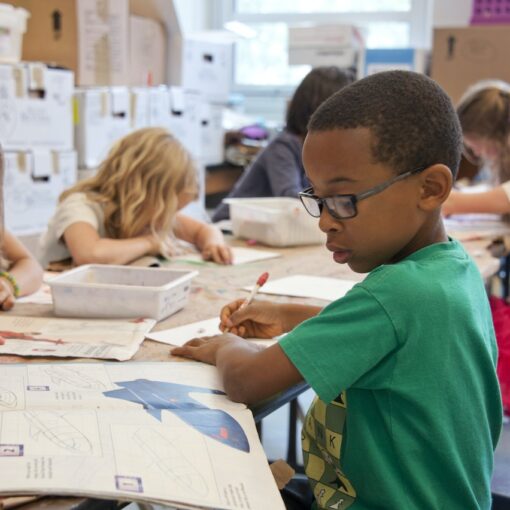Critical thinking is an essential skill in today’s world, enabling individuals to navigate complex information and make informed decisions. It’s a valuable asset both in professional environments and everyday life.

Where can you find the best tools to hone your critical thinking abilities? The digital age offers a plethora of online resources designed to enhance these skills, making it easier than ever to access high-quality educational materials at your convenience.
1) Thinker’s Guide to Critical Thinking by Richard Paul

The Thinker’s Guide to Critical Thinking by Richard Paul is a valuable resource for anyone looking to enhance their critical thinking abilities. Designed for both students and faculty, it offers clear and practical tools to improve thinking.
This guide focuses on essential concepts and techniques. It serves as a helpful supplement to any educational material, making it versatile for various subjects.
Students can use this guide to improve their learning strategies. By applying the techniques discussed, they can develop better study habits and enhance classroom participation.
Faculty members can also benefit. They can incorporate the guide’s ideas into their teaching methods, helping to foster a more critical-thinking-oriented environment.
Additionally, the guide is portable and inexpensive. This makes it accessible to a wide audience, ensuring that many can benefit from its insights.
For more details, the Thinker’s Guide to Critical Thinking can be accessed digitally on the Library for Students – critical thinking.
2) CriticalThinking.org

CriticalThinking.org is a reliable resource for those who want to improve their critical thinking skills. The site offers guides and materials to help users analyze and evaluate their own thinking processes.
One notable feature is their Call for Volunteers page, which seeks people with programming and social media marketing skills. Volunteers gain free access to learning opportunities and the Center for Critical Thinking Community Online.
The site also provides a brief definition of critical thinking. It describes it as self-directed, self-disciplined, and self-corrective thinking aimed at effective communication and problem-solving.
CriticalThinking.org aims to cultivate well-rounded thinkers who can address complex issues. By using their resources, users can enhance their critical thinking capabilities.
3) Mind Tools
Mind Tools is an excellent resource for developing critical thinking skills. It offers a wide range of articles, videos, and courses that help individuals improve their ability to think critically.
The site emphasizes the importance of questioning and evaluating information carefully. It guides users through the process of collecting, analyzing, and drawing conclusions based on evidence.
Mind Tools also provides practical tips and tools to help users apply critical thinking in real-life situations. This includes decision-making strategies and techniques for problem-solving.
By using Mind Tools, individuals can enhance their analytical abilities, improve their decision-making, and build a stronger mindset for tackling complex problems.
4) Stanford Encyclopedia of Philosophy
The Stanford Encyclopedia of Philosophy is a valuable resource for enhancing critical thinking skills. It offers detailed articles on various philosophical topics, including critical thinking. These articles are written by experts and reviewed by peers, ensuring high-quality content.
One article on the website discusses the definition and goal of critical thinking. It notes that critical thinking involves careful thinking directed toward a specific goal. The article also explains different conceptions of critical thinking, including how they vary based on scope, criteria, and goals.
Another section of the encyclopedia covers educational methods for promoting critical thinking. It cites experiments and research that show how educational interventions can improve critical thinking abilities. For example, it mentions work by Glaser (1941), who developed teaching materials for different education levels to test their effectiveness.
The Stanford Encyclopedia of Philosophy also explores practical applications of critical thinking. This includes using critical thinking skills to navigate information in today’s world. By reading these articles, individuals can gain a deeper understanding and appreciation of critical thinking.
This resource is excellent for those looking to improve their critical thinking abilities. The articles are well-researched and provide comprehensive insights into various aspects of critical thinking. Whether you are a student, educator, or simply interested in philosophy, this encyclopedia offers valuable information.
5) The Foundation for Critical Thinking
The Foundation for Critical Thinking is a non-profit organization committed to improving education through critical thinking. It promotes intellectual empathy, humility, perseverance, integrity, and responsibility.
The organization offers various resources to help individuals develop these skills. These resources include guides, articles, and online tools. Each tool is designed to make critical thinking second nature.
The Foundation has been a pioneer in educational reform for decades. It sponsors events like the International Conference on Critical Thinking. These events bring together educators and thinkers from around the world.
For more information on their offerings, visit the Foundation for Critical Thinking. Their digital library is particularly useful for educators looking to enhance the quality of teaching. It contains a wealth of materials to aid in learning and teaching critical thinking.
This foundation also provides comprehensive Thinker’s Guides. These guides are aimed at both faculty and students. They help in developing well-rounded and fair-minded critical thinkers. This can be a valuable resource for anyone looking to improve their critical thinking skills.
6) TED Talks on Critical Thinking
TED Talks provide valuable insights into critical thinking. Samantha Agoos’s talk on 5 tips to improve your critical thinking is a must-watch. She describes a five-step process to enhance decision-making.
Another great video is Erick Wilberding’s presentation on tools to improve your critical thinking. He delves into Socrates’ methods and how they can be applied today. This talk helps viewers see the importance of questioning and reflection.
TED-Ed also offers numerous lessons on critical thinking. These lessons are designed to provoke thought and encourage deeper analysis. They offer animated content that is engaging and informative.
TED’s speakers bring a lot of experience and knowledge. By watching these talks, one can gain different perspectives and strategies. These resources are readily available online and can be watched at any time.
7) The Critical Thinking Community
The Center for Critical Thinking Community Online is a valuable resource for those looking to enhance their critical thinking skills.
It offers a range of interactive learning activities that users can complete, save, and share with others. This interactive approach helps in developing a deeper understanding of critical thinking concepts.
The community includes the world’s largest online library focused on critical thinking. This library contains numerous articles, books, and hours of video content, providing a wealth of information and perspectives.
Members can also participate in or create study groups, allowing for collaborative learning. This is an excellent way to engage with others who are equally committed to improving their critical thinking skills.
For educators and students, the community provides a self-paced academy where participants can work through various exercises. This structured approach ensures that learning is systematic and comprehensive.
The platform also incorporates a social media component, making it easy to connect with others. This fosters a supportive environment where members can share insights and experiences.
Join the Critical Thinking Community to access these resources and become part of a global network dedicated to promoting fairminded critical thinking.
8) Coursera: Critical Thinking Skills
Coursera offers various courses that can help improve critical thinking skills. One such course is Critical Thinking Skills for University Success. This course is designed to help students use critical thinking and argumentation to improve academic results.
Another course, Learn Essential Critical Thinking Skills, targets beginners. It covers the basics of logical reasoning, argument analysis, and problem-solving techniques.
Students with some experience can take intermediate courses. These focus on advanced problem-solving strategies, decision-making processes, and analytical skills. This variety allows learners at different levels to find suitable content.
Additionally, the course What Are Critical Thinking Skills and Why Are They Important? emphasizes the universal importance of critical thinking for personal and professional growth.
Courses on Coursera also incorporate practical exercises. These exercises aid in applying critical thinking to real-world situations. This hands-on approach helps reinforce the concepts learned.
Coursera’s flexibility allows students to learn at their own pace. This makes it convenient for those balancing other commitments.
Coursera courses include materials such as videos, readings, and quizzes. These diverse materials support different learning styles.
9) Brain Pickings by Maria Popova
Brain Pickings, created by Maria Popova, is a digital archive that explores a wide range of topics including literature, science, and art. It is now part of the Library of Congress’s permanent digital archive of culturally valuable materials.
Maria Popova curates this resource to inspire critical thinking through reflections on timeless questions and ideas. Each post features insights drawn from various disciplines, fostering a broad understanding of interconnected themes.
One of the highlights is its focus on the intersection of art and science. Popova frequently shares thoughts on how these fields interrelate, encouraging readers to examine their own perspectives.
Popova’s work also includes the annual event, “The Universe in Verse,” which celebrates science through poetry. This unique blend of disciplines provides a fresh way to engage with scientific concepts.
Brain Pickings, now rebranded as The Marginalian, continues to be a labor of love and a space for exploring intellectual curiosities. The site’s contemplative approach integrates thought and feeling, making it a vital resource for those looking to enhance their critical thinking skills.
Readers can explore a wealth of essays, book summaries, and reflections, each aimed at deepening the reader’s appreciation for the complexities of knowledge and creativity. Maria Popova’s thoughtful curation offers a meaningful way to engage with the world’s endless questions.
10) The Miniature Guide to Critical Thinking by Linda Elder
The Miniature Guide to Critical Thinking, co-authored by Richard Paul and Linda Elder, is a concise resource for enhancing critical thinking. This guide simplifies complex concepts, making them accessible for both students and educators.
It focuses on core principles and tools that form the foundation of critical thinking. This framework can be applied to any subject or profession.
The guide is valued for its practical approach. It outlines elements such as questioning assumptions, assessing evidence, and recognizing biases. These elements help readers develop a deeper understanding of their thought processes.
Instructors utilize this guide to design better educational materials. It provides useful strategies for creating assignments and tests. This ensures that students not only learn content but also develop critical thinking skills.
Students can use it to improve their academic performance. The guide teaches methods to analyze arguments and solve problems effectively. It acts as a supplement to any textbook, enhancing learning across various courses.
The guide’s user-friendly format makes it easy to carry and refer to at any time. Both new and experienced thinkers find value in its straightforward explanations and practical tips.
For more details, visit The Miniature Guide to Critical Thinking here.
Understanding Critical Thinking
Critical thinking involves evaluating information and arguments with an open yet skeptical mindset. It helps in making better decisions and solving problems effectively.
Definition of Critical Thinking
Critical thinking is the disciplined process of actively analyzing, synthesizing, and evaluating information collected from observation, experience, or communication. It involves questioning assumptions, identifying biases, and distinguishing between facts and opinions.
Key Elements of Critical Thinking:
- Clarity – Ensuring that the message is clear.
- Accuracy – Verifying the truth of the information.
- Relevance – Relating the information to the issue at hand.
- Logic – Making sure the arguments are coherent and well-structured.
Processes Involved:
- Observation: Collecting data through various sources.
- Analysis: Breaking down complex information into smaller, understandable parts.
- Inference: Drawing conclusions from the available data.
- Evaluation: Assessing the credibility and relevance of the information.
Importance in Everyday Life
Critical thinking is crucial in various aspects of everyday life. It allows individuals to make well-informed decisions and solve problems more efficiently.
Practical Benefits:
- Problem-Solving: Enables better approaches to resolving issues.
- Decision-Making: Assists in evaluating options and making choices.
- Communication: Enhances clarity and effectiveness in conveying ideas.
- Self-Reflection: Promotes personal growth by encouraging reflection on one’s beliefs and actions.
Applications:
- Work: Critical thinking skills are highly valued in the workplace. They aid in navigating complex projects and improving productivity.
- Education: Students benefit by developing better study habits and academic performance.
- Personal Life: Helps in making informed consumer choices and managing personal finances wisely.
Core Components of Critical Thinking
Critical thinking involves various components that help you analyze information and make better decisions. Two key parts of this process are analysis and evaluation and logical reasoning.
Analysis and Evaluation
Analysis and evaluation involve breaking down information into smaller parts and assessing its validity. This skill requires a deep look at data, identifying patterns, and understanding relationships. Key steps in analysis include:
- Identifying main ideas: Pick out the core points from a piece of information.
- Evaluating evidence: Check if the data supporting these ideas is credible.
- Detecting bias: Be aware of any biases in the information that could affect its reliability.
Evaluation focuses on judging the quality of the conclusions drawn from the analysis. Insights from multiple sources should be compared for consistency. It boosts critical thinking by ensuring that conclusions are based on solid evidence and logical connections. For instance, a journalist might verify information from multiple sources to ensure accuracy before publishing.
Logical Reasoning
Logical reasoning is about using clear and rational thinking to solve problems and make decisions. This component involves understanding logical connections between ideas and constructing arguments. Here are key aspects:
- Deductive reasoning: This process starts with a general statement and examines the possibilities to reach a specific, logical conclusion.
- Inductive reasoning: This begins with observations and moves towards broader generalizations.
- Avoiding fallacies: Logical reasoning also involves being aware of common logical fallacies that can weaken arguments.
By mastering these skills, individuals can form coherent arguments, detect inconsistencies in reasoning, and improve decision-making. Critical thinkers regularly question assumptions and base their beliefs on sound reasoning, ensuring that their conclusions are well-supported and valid.
Techniques to Enhance Critical Thinking
Developing critical thinking skills involves various methods that help individuals think more clearly and rationally. Two essential techniques are asking effective questions and developing open-mindedness.
Asking Effective Questions
Asking the right questions is crucial for uncovering deeper understanding and insights. Effective questions should be open-ended, encouraging exploration and critical analysis.
Questions like “Why did this happen?” and “What are the possible outcomes?” are essential for delving into complex issues. Open-ended inquiries foster a thorough examination of topics and help avoid surface-level thinking.
Critical thinkers should also ask questions that challenge assumptions. For example, “What evidence supports this claim?” or “Are there alternative perspectives?” challenge existing beliefs, promoting deeper investigation.
Consistently practicing this technique aids in identifying gaps in knowledge and understanding, providing a clearer, broader view of any subject.
Developing Open-Mindedness
Critical thinkers must remain open to new ideas and perspectives. This openness involves setting aside personal biases and considering different viewpoints without immediate judgment.
One way to develop open-mindedness is to engage in discussions with people of diverse backgrounds and opinions. Listening actively and empathetically helps widen one’s perspective and enhances understanding.
Reflecting on one’s own thoughts and beliefs also aids in recognizing inherent biases. Asking oneself questions like “Why do I believe this?” or “Could there be another explanation?” is beneficial.
Furthermore, reading a wide range of materials, from various authors and genres, helps expose individuals to different ways of thinking and improves critical thinking abilities.





